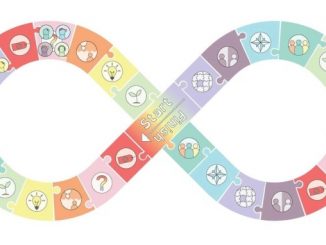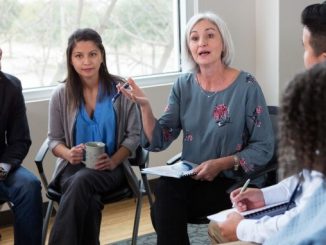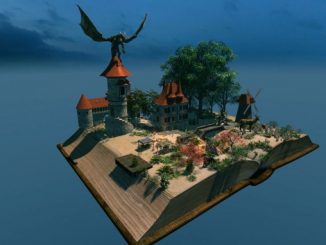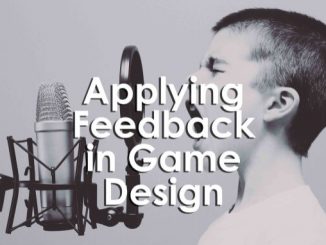Welcome to issue twelve of Ludogogy Magazine – Debriefing & Feedback
Games-based Learning is (usually) also experiential learning, and as such there is a need, not only for the ‘doing’ (or playing, in the case of GBL), but also a certain amount of reflection on the doing, in order to adjust our play, to get better at whatever decisions we are making in the game, and thereby learn – new skills, knowledge or even values.
This issue logically follows on from the previous one, because feedback is one of the principle tools we can use to effect change, in ourselves and others.
The word ‘feedback’ can be used in two ways here. First, it describes the countless ‘signals’ generated by the play itself which answer the question ‘how well am I playing?’, and inform subsequent decisions and plays (in feedback ‘loops’). Second, it encompasses the insights that the player/learner draws from the overall experience of play, including actual verbal feedback from e.g. other players or observers – the things that are ‘learned’.
Games are so often hyped so much in the field of learning, that we sometimes forget that as well as the play itself, we often also need a skilled facilitator to help learners optimise their learning experience. Games can be designed to give countless opportunities for detailed and relevant feedback, but interrogating those data and utilising them well is a skill in itself, which can be modelled for learners by someone who knows how to ask a really powerful question.
This issue covers all of the above and more. I hope you enjoy it.
Explore:
Part II of the article about the Pizza KATA (Agile) game
‘Liber Domus’ – Open-world Mathematics teaching game
Play Personalities for Gamification
Using player feedback to inform game design
Much more
We are now accepting articles for the next two issues
Issue 13 (September) ‘Make or Break’ – deadline 29 August – Two really important aspects of designing games are prototyping and playtesting. What are the do’s and don’ts, prototyping frameworks, stories of playtests that went well, or went awry. Maybe we’ll even run a few live playtests.
Issue 14 (November) ‘Economics’ – deadline 31 October – The intricacies of designing and implementing in-game economies, creating value ‘sources’ and ‘sinks’ in gamification applications, using games for learning about real-world economies, different economic models or ideas e.g. Doughnut Economics, Triple Bottom Line, as implemented in games etc.
Send proposals or drafts to [email protected]
Stay Home, Stay Safe, Stay Playful










